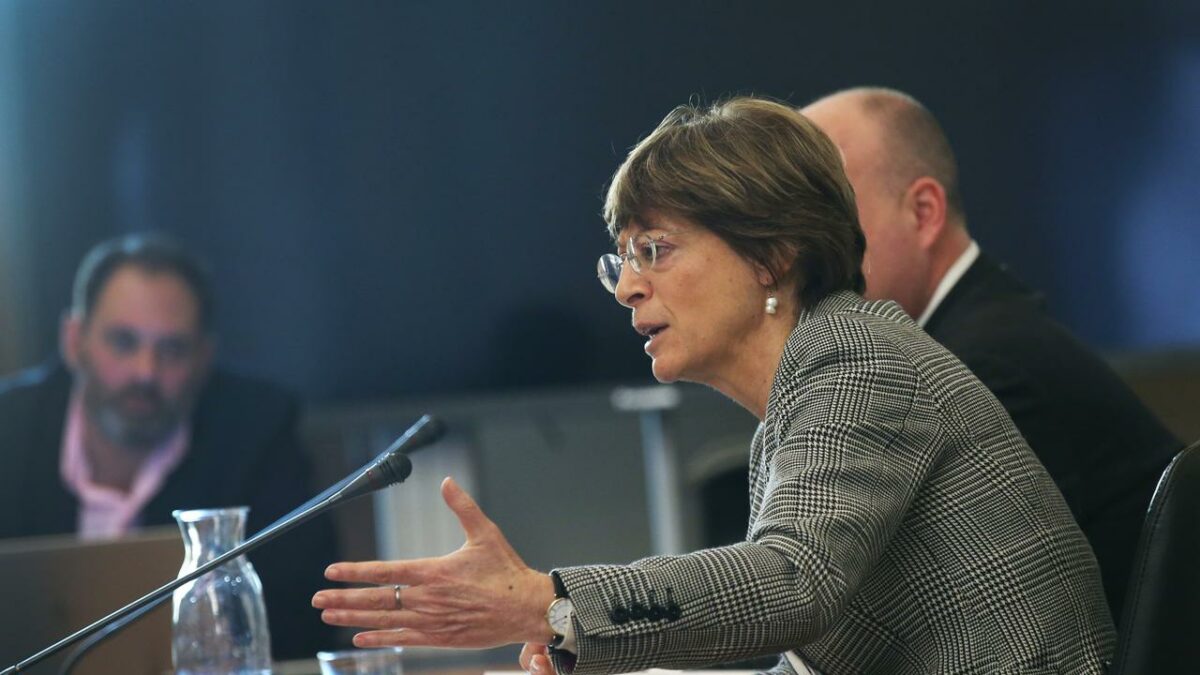"*" indicates required fields
Oho uses the information you provide us with to contact you about relevant content, products and services. You may unsubscribe at any time. For more information, see our Privacy policy.

Last week the Victorian Ombudsman, Deborah Glass, called out a weakness in the Victorian Working with Children Check system. Specifically, she asked for the legislation to change to allow the issuing body to draw on multiple sources of information beyond the ultimate outcome of criminal charges and/or convictions.
The key changes required in the Worker Screening Act, 2020 (Vic)
“The biggest remaining gap is the need to amend the Worker Screening Act 2020 (Vic). Working with Children Check Victoria should be able to act on information that indicates someone poses an unjustifiable risk to the safety of children, regardless of whether criminal charges are brought.” Deborah Glass, Ombudsman Victoria.
Deborah examined a case of a youth worker who had been investigated many times but not ultimately charged and so was enabled to continue to hold a clearance to work with children despite the WWCC Victoria issuing authority wanting to revoke the card. Ultimately, though a complex case, the offender continuing to have a card was a contributing factor in providing him access to offend.
Why is this change important?
Like Grace Tame’s campaign to harmonise the law across Australia in it’s definitions of child abuse,(in particular replacing “maintaining or engaging in a sexual relationship” with “persistent sexual abuse of a child’ and establishing common definitions of grooming as criminal offence), as a society we need to be continuously improving our laws, controls and systems to stop perpetrators. Any improvement in our regulatory bodies to increase control and reduce the likelihood of offences taking place is critical.
Oho fully supports the Ombudsman’s recommended changes that also bring Victoria into line with similar powers in other states. WWCCs have an important role to play in effective safeguarding controls so when a weakness is exposed it can be unsettling. Can we still have faith in our WWCC systems across Australia to help us protect the vulnerable? What can we rely on and what does it mean for this control?
What should our response to this news be?
Firstly, lets talk about what it should not be. We should not stop worrying about the importance of a WWCC. WWCCs and Teachers licences are an effective control for ensuring individuals who end up in the criminal justice system with a person-to-person charge or a conviction in any context don’t continue to have a right to work. We need to know if any of our staff, contractors and volunteers are in that situation. If the offence did not occur in our workplace the only way to confidently be aware of a problem is regular monitoring of WWCC. We need to know quickly to be able to act as necessary to immediately remove any people who pose a risk. For all organisations it is important to continue to collect and monitor WWCC and other credentials. If the changes the Ombudsman has recommended are adopted there will be more people, not less in the category of having their WWCC revoked or not being granted in the first place – as she says where an individual “poses an unjustifiable risk”. That’s in all our interests. So, keep a focus on these controls – you need to by law. As a priority, keep the collection of accreditation records and ongoing monitoring as a key tool in your defence system (and if you are finding that hard work, Oho is here to lift that burden and make it easier).
What else should we do?
The WWCC is an important control but other safeguarding practices are also required in concert to provide the strongest lattice of protection. The case study shows several people individually aware of issues relating to the employee’s behaviour but no collective conversation to evaluate his behaviour. That’s hard to do – as a society we shy away from the risk of ‘maligning’ character. We need to be ok to talk about concerns and leaders need to encourage the conversation. Establishing a culture where speaking up about things that make us uncomfortable is valued is hard work but makes for a much stronger safeguarding protection. Tools like Your Call also help anonymise the feedback to allow even the most junior people to have the confidence to speak up.
And good systems housekeeping, revoking access to systems and records when an individual leaves the organisation is a must.
WWCCs an important foundational control for a safe workplace
WWCCs remain an important control when verified regularly. They are almost useless as a protection unless verified regularly because the WWCC agencies bar or revoke cards with surprising regularity. On top of that, notification systems are unreliable unless you have outstanding records with the registry and in some cases even then an organisation is at risk because the individual controls the linking. Allowing someone to work with an expired check which often happens through administrative oversight is equally risky and carries penalties. WWCCs are a strong foundational protection when verified regularly.
The changes are good for a safer Australia
Changes to the definitions of sexual abuse crimes in law as Grace Tame is championing for, and the Ombudsman’s recommended change will increase the number of cards revoked or denied. Even more reasons for organisations to be vigilant to make sure everyone has a valid WWCC at all times. Oho can help achieve that without an onerous administrative burden. We support the Ombusdman’s change and encourage all organisations to maintain strong monitoring controls over their worker credentials, mitigating risks for those they care for and minimising penalties, director liability and reputational damage.